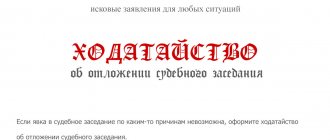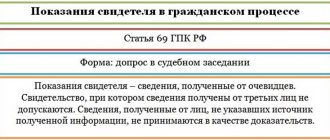In the verdict, the court is obliged to indicate reliable personal data of the convicted person, the qualifications of the crime, the event of the crime and the punishment imposed on the offender. Of enormous importance when deciding the type and amount of punishment is the personality of the perpetrator - his lifestyle, exemplary behavior before the crime or, conversely, outstanding criminal records. Everything is taken into account: availability of work, characteristics, dependent children and even pregnancy of the spouse, disability of a close relative, etc.
The judge, as it were, “sorts” the information that characterizes the person. Some of them are aggravating circumstances, others are mitigating; Moreover, both influence the assignment of punishment. In this article we will dwell in detail on the data resulting in a mitigation of punishment.
Mitigating circumstances are a chance to reduce the fine
If there are mitigating circumstances to reduce the tax fine, the amount of sanctions imposed on the inspection report can be reduced. The factors due to which they will be released from liability for committing an offense are defined in paragraph 1 of Art. 112 of the Tax Code of the Russian Federation. These include:
- difficult personal or family circumstances;
- threat or coercion;
- financial, service or other dependence;
- difficult financial situation physical the person held accountable;
- other circumstances that are recognized as such by the court or tax authority considering the case.
Conclusion: the law makes it possible to reduce the size of sanctions. But to do this, the entrepreneur needs to prepare and submit a petition for mitigating circumstances to the tax office at the place of registration.
Forced labor
Currently, mitigation of a sentence of imprisonment is possible by replacing it with so-called forced labor - a relatively new type of punishment, which is not yet widespread in Russia.
Forced labor is provided for in Article 53.1 of the Criminal Code of the Russian Federation and consists in the fact that the convicted person is sent to a special correctional center where he works (instead of imprisonment). At the same time, from his salary to the state income is withheld from 5 to 20%. In a certain sense, this type of punishment is similar to correctional labor, but the difference between forced labor is that the latter is served in isolation.
Currently, mitigation of punishment by forced labor is used extremely rarely by judges (for 2022 - in relation to just over 500 convicts). This is explained by the fact that in Russia so far only 8 correctional centers and 15 isolated places in colonies have been created and are functioning, where such training is possible.
Replacing imprisonment with forced labor can only apply to convicts who have been sentenced to a term of no more than 5 years.
Wording options for petitions
The following are usually indicated as mitigating facts:
- committing an offense for the first time;
- unintentionality of actions;
- impossibility of paying wages to employees due to the collection of a fine;
- the activity is unprofitable or seasonal;
- the organization is a bona fide taxpayer, etc.
If you are preparing a petition to the tax office to reduce the fine for late submission of reports, the following will be recognized as mitigating facts:
- disproportionate punishment to the nature and gravity of the offense committed;
- insignificance of delay;
- lack of intent to commit an offense;
- absence of negative consequences for the budget;
- a technical failure that prevented the report from being submitted on time;
- the fact of committing a violation for the first time.
IMPORTANT!
Regardless of what circumstances are cited, it is necessary to supplement the petition with copies of documents confirming the existence of the facts mentioned.
An example of how to write a petition to the tax office to reduce the fine
Rules for drawing up a petition
Petitions to reduce the fine are made in writing, in any form. The document is handed over to the official who is considering the case, or to the judge. It describes the grounds according to which the citizen being prosecuted wants to reduce the fine. The list of reasons is given above.
It is advisable to attach evidence to the petition that substantiates the circumstances specified in the document. For example, if the violator cannot pay the fine due to a difficult financial situation, it is advisable to attach a 2-NDFL income certificate; information about dependent children; information about credit and other debt obligations, and others.
The content of the petition may be as follows:
- Information about the case under consideration: article of the Code of Administrative Offenses of the Russian Federation or the Tax Code of the Russian Federation, circumstances of the violation.
- Link to legal provisions containing grounds for reducing the fine (we outlined them above).
- A request to reduce the fine, the amount of the fine that the applicant wishes to pay.
- Applicant's signature.
How much will the fine be reduced?
According to paragraph 3 of Art. 114 of the Tax Code of the Russian Federation, if there is at least one mitigating circumstance, the punishment is reduced by at least two times compared to the original amount. At the same time, the Plenum of the Supreme Arbitration Court of the Russian Federation, in paragraph 16 of Resolution No. 57 of July 30, 2013, indicated: in paragraph 3 of Art. 114 of the Tax Code of the Russian Federation establishes only a minimum limit for reducing sanctions. Based on the results of an assessment of the circumstances, the court has the right to reduce the amount of the penalty by more than half and even make it below the minimum amount (see letters from the Ministry of Finance of Russia No. 03-02-08/47 dated May 16, 2012 and No. 03-02-08/7 dated January 30 .2012).
However, neither the Federal Tax Service nor the court has the right to reduce the amount of sanctions to zero, since this is already an exemption from liability for the offense committed.
If there are mitigating facts, only the amount of penalties applied is reduced, but taxes and penalties cannot be reduced on these grounds.
Use the free guide from ConsultantPlus experts to correctly submit an application to the tax office and achieve a reduction in the fine.
Petition for mitigation of punishment
Question: How does the judge find out that the defendant has children, a positive reference and other information?
Usually the investigator attaches all these documents to the case at the investigation stage. At the court hearing, the defense examines the case materials, including those characterizing the defendant, announcing the contents of each document. However, in some cases the need to include certain information arises only in court. In such situations, you need to file an appeal to the court.
A petition for mitigation of punishment may come from any participant in the process , including the defendant. For example, with the permission of the judge, at the initiative of the defense attorney, witnesses can be called into the courtroom who were not eyewitnesses to the incident, but can tell a lot about the culprit and characterize him positively. These same witnesses (for example, neighbors) can draw up and submit a written petition for leniency towards the defendant.
In certain cases, the victim can also ask for a mitigation of punishment . For example, in his testimony given to the court, he has the right to draw attention to the absence of claims against the culprit, has forgiven him and asks not to punish him strictly. Such a statement can be submitted either in writing or orally during testimony (then it will be recorded in the protocol). If the victim requests termination of the case for reconciliation, such a petition must be submitted only in writing.
You can read about the specifics of terminating a reconciliation case in our separate article.
Question: Can persons who are not participants in the process, that is, those people who were not questioned either during the investigation or in court (for example, colleagues or relatives of the convicted person, wife, etc.) apply for a reduced sentence?
Yes, it is quite. Such a petition can be submitted to the judge through the office:
To the Zheleznodorozhny District Court of Omsk
Emelyanova Maria Andreevna, born in 1950, living in Omsk, st. Green, 2
Petition from the mother of the defendant Emelyanov M.K.
The Zheleznodorozhny District Court of Omsk is considering a criminal case against my son Maxim Konstantinovich Emelyanov, born in 1975, accused of committing a crime under Part 3 of Art. 159 of the Criminal Code of the Russian Federation.
I ask you not to strictly punish M.K. Emelyanov, take into account that he admitted his guilt and is characterized positively. I am a disabled person of group 1, Emelyanov M.K. took care of me, helped around the house, responded to my every request - to go to the store, to the pharmacy, to take me to the hospital. Emelyanov is a respectable person, he stumbled once and committed a crime, for which he deeply repents.
Please take into account the provisions of Part 3 of Art. 60 of the Criminal Code of the Russian Federation that when assigning punishment, one should take into account not only the social danger of the crime and the personality of the perpetrator, but also the impact of the punishment on the living conditions of his family. If Emelyanov is appointed M.K. real imprisonment, he will not be able to pay off the remaining part of the material damage caused by the crime. In addition, he will not be able to provide me with moral and material support, take care of me, and I have no other relatives.
Based on the above, guided by Art. Art. 43, 60 of the Criminal Code of the Russian Federation,
ASK:
Show humanity and leniency towards M.K. Emelyanov, assign him a punishment that is not related to actual imprisonment.
Emelyanova M.A., 10/02/2021, signature.
Such a petition is written in free form, sent by mail to the court's address or submitted directly to the office. It must be authorized by the court, and in some cases the judge has the right to summon and interrogate the author of the petition.
There is no point in submitting such a statement at the stage of investigation to the police - the investigator does not have the right to impose punishment, this is the prerogative of the court only.
If there is a confession in the case, it is not necessary to submit a separate written petition to recognize it as a mitigating circumstance. This can be said in the debate, that is, in the final stage of the trial, preceding the last word and verdict.
Replacing the unserved part of the sentence with a milder type of punishment applies to those sentenced to imprisonment for crimes of any gravity, as well as to those serving a sentence in a disciplinary military unit or forced labor.
Conditions for replacing the unserved part of the sentence with a more lenient one
In accordance with Part 2 of Article 80 of the Criminal Code of the Russian Federation, the replacement of the unserved part of the punishment with a more lenient type of punishment can be carried out only if the convicted person has already served a certain sentence, namely:
- at least 1/3 of the punishment imposed for crimes of minor or medium gravity;
- at least ½ part of the punishment imposed by the court for committing a serious crime;
- at least 2/3 of the punishment imposed for committing a particularly serious crime;
- at least ¾ of the punishment for a crime against the sexual integrity of minors, those convicted under Article 210 of the Criminal Code of the Russian Federation - for organizing a criminal community;
- at least 3/5 of the punishment for a crime against the sexual integrity of minors.
A petition or submission to replace the unserved part of the sentence with a more lenient punishment is considered by the court at the place where the convicted person is serving the sentence.
Who can file a petition to replace the unserved part of the sentence with a more lenient punishment?
This basis for exemption from punishment is used by the administration of places of deprivation of liberty as an incentive measure for good behavior, which is expressly provided for in Part 4 of Article 113 of the Penal Code of the Russian Federation.
At the same time, the following persons have the right to apply to the court to replace the unserved part of the sentence with a more lenient punishment:
- convicted;
- lawyer of the convicted person;
- legal representative of the convicted person.
The lawyer and the legal representative of the convicted person submit a petition to replace the unserved part of the sentence with a more lenient punishment directly to the court. The convicted person submits a petition such as a petition for parole through the administration of the colony. The administration of the colony sends the petition of the convicted person and its character reference to the court within 10 days.
Petition to replace the unserved part of the sentence with a more lenient punishment
The petition to replace the unserved part of the sentence with a more lenient punishment must contain the following information:
- information indicating that further correction does not require the convicted person to fully serve the assigned sentence;
- information about compensation for damage from the crime;
- other information that, in the opinion of the author of the petition, indicates that the correction of the convicted person does not require the full serving of the imposed sentence.
The petition of the convicted person, his legal representative and lawyer may be accompanied by documents substantiating their petition. The absence of characteristics and other documents that must be provided by the administration of places of deprivation of liberty is not a basis for the return of the convicted person’s application. In this case, the court sends a copy of the petition to the institution executing the sentence for subsequent submission of the necessary documents to the court.
At the request of the persons filing the petition, the court may provide assistance in collecting the necessary documents.
In its form and content, the introductory and motivational part of this petition is actually no different from a petition for parole.
It should be remembered that if the court refuses parole, the convicted person has the right to petition the court to replace the unserved part of the sentence with a more lenient punishment.
The procedure for submitting a petition to replace the unserved part of the sentence with a more lenient punishment to the court.
The administration of places of deprivation of liberty within 10 days from the date of receipt of the petition is obliged to send it to the court, attaching its characteristics to it. The specification must include the following information:
- information about the behavior of the convicted person while serving his sentence;
- information about the attitude of the convicted person to work, study, and the crime he committed;
- information about the convict making amends for the damage caused by the crime;
- in relation to persons convicted of crimes of a sexual nature against minors, his attitude towards the prescribed compulsory treatment is indicated. The characteristics of those convicted of these crimes are accompanied by the conclusion of the attending physician.
In practice, judges require the colony administration to attach to the convict’s petition, in addition to the characteristics, copies of the following documents:
1. Petition of the convicted person
2. The verdict and other court decisions in the case,
3. Court decisions made on a petition for parole, deferment of execution of a sentence, change of regime, if the convicted person previously filed such petitions.
4. A certificate of existing penalties and incentives while serving the sentence.
5. Information about compensation for damage. In accordance with the law, this information is provided by the convicted person himself. However, the administration of the correctional colony must compensate for the damage. The evidence may be a copy of the writ of execution or another official document. a receipt from the victim, with his notarized signature.
6. A medical certificate indicating that the convicted person can serve a certain type of sentence due to health reasons. For example, correctional work.
7. Documents confirming that the convicted person has a place of residence and work in the event of his release. For example, a letter of guarantee from the administration of an enterprise about the employment of a convicted person in the event of his release, a certificate from the police department at the place of residence of the convicted person about his intended place of registration, title documents for residential premises.
Judicial practice in considering petitions to replace the unserved part of a sentence with a more lenient punishment
The Supreme Court of the Russian Federation in its resolution dated 04/21/2009 N 8 (as amended on 02/09/2012) “On the judicial practice of parole from serving a sentence, replacing the unserved part of a sentence with a milder type of punishment” explained to the courts that the courts should not unreasonably refuse parole and replace the unserved part of the sentence, especially on grounds that are not contained in the law. In particular, the Supreme Court noted that a criminal record, the leniency of the sentence imposed, denial of guilt, or a short stay in a penal colony are not grounds for refusing to replace the unserved part of the sentence with a more lenient punishment.
Penalties that were imposed on the convicted person while serving his sentence must be assessed by the court, taking into account their nature and in conjunction with other data characterizing the personality of the convicted person, after the court has sentenced him.
The presence of penalties imposed on a convicted person cannot serve as an obstacle to parole or replacement of the unserved part of the sentence with a more lenient type of punishment.
The main court also explained that when resolving a petition to replace the unserved part of the sentence with a more lenient punishment, it should be clarified for what reason the material damage caused by the crime was not compensated. If the damage from the crime was not compensated for reasons beyond the control of the convicted person, for example, the convicted person has a disability, an illness that prevents work, or the inability to find a job in a colony, the court does not have the right to refuse the petition on the grounds that the damage has not been compensated.
The presence of facts indicating the deliberate evasion of the convicted person from compensation for harm entails refusal to satisfy the petition of the convicted person.
If the court decides to satisfy the stated petition, it must also decide the issue of the possibility of releasing the convicted person from the imposed additional punishment. o replace it with any punishment provided for by the Criminal Code of the Russian Federation. In practice, imprisonment can be replaced by: restriction of freedom, correctional labor and sometimes a fine.
The replacement of punishment in the form of imprisonment with correctional labor is not assigned to disabled people of group I, pregnant women, and women with children under three years of age.
Although formally, the unserved part of a prison sentence can be replaced by a fine, in judicial practice, such a replacement is not widespread, since most convicts do not know whether they will be able to pay it after release.
In addition, the procedure for such a replacement and the amount of the fine in case of replacement are not defined by law.
Previously, the court decision on the petition of convicts to replace the unserved part of the sentence with a more lenient punishment depended entirely on the characteristics of the colony represented and the position of this institution in court.
How the decision is made
The decision to change the punishment towards mitigation is made exclusively by the court. The latter must necessarily take into account the following characteristics of the convicted person:
- behavior;
- his attitude to study and work within the period of serving his sentence, his attitude to the committed act;
- actual reparation of the harm caused - in part or in full.
In relation to a sane convict who suffers from a disorder of sexual preference (pedophilia), and who, as an adult, has committed a crime against the sexual integrity of a minor under 14 years of age, the court also takes into account:
- the use or absence of compulsory medical measures against the offender;
- his attitude towards treatment (voluntary/compulsory);
- results of forensic psychiatric examination.
The procedure for making a decision
As already mentioned, the court makes a decision after analyzing the objective data presented by the convict, the administration of the penal institution, characterizing the criminal himself and the measures that were taken for his re-education, correction and even treatment.
In addition, the law directly stipulates what can be replaced and how: in parts 2 and 3.
Procedurally, this happens in accordance with Art. 397, 399 Code of Criminal Procedure of the Russian Federation.
Download for viewing and printing:
Article 397 of the Criminal Procedure Code of the Russian Federation “Issues to be considered by the court when executing a sentence”
Article 399 of the Criminal Procedure Code of the Russian Federation “Procedure for resolving issues related to the execution of a sentence”
How is it happening now?
Special changes to the procedure for applying Art. has not changed since 2014. The only thing that will be added to it in 2022 is the possibility of application to persons suffering from pedophilia.
Terms of sale
This article also has practical aspects of application.
Thus, the unserved part may be replaced by a more lenient measure of state coercion after the actual serving of a prison sentence by a person sentenced to imprisonment for committing:
- acts of minor/medium gravity - from 1/3 of the term or from 1/4 of the term if imprisonment is replaced by forced labor;
- serious criminal act - from 1/2 of the term or from 1/3 of the term if imprisonment is replaced by forced labor;
- especially serious - from 2/3 of the term or 1/2 of the term, if imprisonment is replaced by forced labor;
- criminal acts against the sexual integrity of children, as well as acts provided for in Art. 210 of the Criminal Code, - from 3/4 of the term;
- criminal acts against the sexual integrity of children under 14 years of age - from 4/5 of the prescribed period.
In addition, the law states that when replacing the unserved part of a state coercive measure, the court may choose any milder sanction in accordance with the classification of Art. Criminal Code, within the limits provided for by the Criminal Code for each variety. An exception is cases of replacing punishment in the form of imprisonment with forced labor in accordance with Part 2 of Art. .
Download for viewing and printing:
Article 210 of the Criminal Code of the Russian Federation “Organization of a criminal community (criminal organization) or participation in it (it)”
Article 44 of the Criminal Code of the Russian Federation “Types of punishments”
Who is eligible for a replacement?
Any restrictions on the subjects of rights of Art. does not contain. From which we can conclude that any person who meets the above criteria can apply for a replacement.
Statistics of those released on parole and Article 80 of the Criminal Code of the Russian Federation
What promotes replacement
Objective data and subjective characteristics taken into account by the court when making a decision have been described above. Of course, they should all be positive.
The role of exemplary behavior
The behavior of the offender after conviction is taken into account among other data. However, if the offender did nothing else besides this, which may indicate his correction, then this is not enough to make a decision in his favor.
Is it possible to apply for an installment plan for a fine and how to do it?
A petition for installment payment of a fine can be filed both in an administrative offense case and in a tax case. In an administrative case, it is filed on the basis of Art. 31.5 of the Code of Administrative Offenses of the Russian Federation, and for tax purposes - on the basis of Art. 64 Tax Code of the Russian Federation.
According to the Code of Administrative Offenses of the Russian Federation, a fine can be paid in installments for a period of up to 3 months. When a request for an installment plan is granted, the decision indicates that an installment plan has been granted, the amount of the monthly payment and the installment period.
As for tax offenses, the possibility of paying a fine in installments is provided for in Art. 64 Tax Code of the Russian Federation. An application can be submitted to the tax authority, and if it is found to be justified, then an installment plan will be granted.
3.1. Duration of work
The beginning of the term of serving correctional labor (Part 2 of Article 42 of the Penal Code of the Russian Federation) is:
- for convicts who have their main place of work - the day the employer receives the relevant documents from the Penitentiary Inspectorate;
- for convicts who do not have a main place of work - the day they go to work.
The term of correctional labor is calculated in months and years during which the convicted person worked and deductions were made from his salary. Moreover, in each month of the established sentence, all working days must be worked. If the employee did not work for some days and there are no grounds for counting unworked days towards the sentence, then correctional work continues until the required number of days is fully worked out (Part 1 of Article 42 of the Penal Code of the Russian Federation).
The sentence for convicted persons working in organizations that use summary recording of working time is calculated based on the duration of working time for the accounting period, which does not exceed the established number of working hours (Part 6 of Article 42 of the Penal Code of the Russian Federation).
Please note: the time during which the convicted person did not work is not counted towards the term of serving correctional labor (Part 3 of Article 42 of the Penal Code of the Russian Federation).
Legal grounds for reducing the amount of an administrative fine
Currently, judges are empowered in some cases to reduce the minimum amount of an administrative fine for both legal entities and individuals. The precedent was created thanks to the adoption by the Constitutional Court of the Russian Federation of Resolution No. 4-P dated February 25, 2014 (hereinafter referred to as Resolution No. 4-P).
The reasons for the reduction here are as follows (in total):
- The existence of exceptional circumstances related to the specifics of the administrative offense committed and its consequences, as well as the property and/or financial situation of the legal entity or citizen brought to administrative responsibility (Clause 2.2 of Article 4.1 of the Code of Administrative Offenses of the Russian Federation). If the issue of reducing the fine against an individual is being considered, his personal characteristics are also taken into account (clause 3.2 of this article).
- The minimum fine is:
- 100 thousand rubles. — for legal entities;
- 50 thousand rubles. - for officials;
- 10 thousand rubles. - for citizens (see the norms mentioned above).
If a person does not prove the existence of exceptional circumstances on the basis of which the fine can be reduced, the judicial authority will refuse to satisfy the petition (resolution of the 9th AAC dated October 20, 2014 in case No. A40-48657/14, paragraph 8, paragraph 5 of Resolution No. 4 -P).
The corresponding petition should be submitted at the stage of consideration of the case. If the proceedings are completed and the court has made its decision, it is necessary to file a complaint.
You will probably also be interested in the material prepared by ConsultantPlus on this issue. If you do not yet have access to the ConsultantPlus system, you can obtain it for free.
2.2. Recruitment
Let's consider a situation where a convicted person is sent to an employer to serve correctional labor.
At the end of the initial conversation, the correctional institution issues the convicted person an order to appear at the organization to serve correctional labor (clause 70 of the Instructions).
The organization has the right to refuse such an employee. However, it should be remembered that in the event of an unreasonable refusal to hire a convicted person, the Penitentiary Directorate will send information to the prosecutor's office (clause 72 of the Instructions).
For reference: In accordance with Part 2 of Art. 64 of the Labor Code of the Russian Federation prohibits unreasonable refusal to conclude an employment contract. When hiring, you should rely solely on the business qualities of employees.
The tear-off form of the order must be filled out and sent to the UII. In practice, most often, it is given to the future employee (it is possible to send it by fax or email, or hand it over).
Next, when a convicted person is employed, the inspectorate sends a notice to the organization with a copy of the court’s verdict (ruling, ruling) (clause 73 of the Instructions).
Confirmation of the notice should be provided directly to the UII, and not through the employee.
Control over the appeal of a convicted person to an organization regarding employment and his employment is carried out by the Penitentiary Inspectorate daily using communication means (clause 71 of the Instructions).
In fact, the procedure for employing a convicted person is as follows:
1) the criminal-executive inspection issues the convicted person an order on the need to appear at the organization to serve the sentence in the form of correctional labor;
2) the convicted person submits the order to the organization;
3) the employer makes a decision to hire the convicted person or refuse, fills out a tear-off slip of the order to transfer it to the Penitentiary Inspectorate;
4) if the organization agrees to accept such an employee, then the UII sends a notice to the organization with a copy of the court verdict (ruling, resolution), which indicates the terms of work and deductions from wages;
5) the organization registers the person sentenced to work and fills out a confirmation for the UII on the detachable notice slip, where it specifies the employee’s position and the order on the basis of which he was hired.
2.1. Place of work
As a rule, correctional labor is served by convicts at their main place of work (Part 1 of Article 39 of the Criminal Executive Code of the Russian Federation, hereinafter referred to as the Penal Code of the Russian Federation).
For persons who do not have a main place of work, the object of work is determined by local government bodies in agreement with the penal inspections (hereinafter referred to as the Penal Inspectorate), but in the area of residence of the convicted person (Part 1 of Article 39 of the Penal Code of the Russian Federation).
In accordance with paragraph 70 of the Instructions for organizing the execution of sentences and measures of a criminal legal nature without isolation from society, approved by Order of the Ministry of Justice of the Russian Federation dated May 20, 2009 No. 142 (hereinafter referred to as the Instructions), when determining the place for a convicted person to serve his sentence, the inspectorate takes into account the crime for which he was convicted, his place of residence, state of health, profession and other circumstances. At the same time, the convicted person does not have the right to refuse the job offered to him (Part 4 of Article 40 of the Penal Code of the Russian Federation).
Compliance with the conditions of serving the sentence and the fulfillment of the requirements of the sentence by the organization in which the convicted person works is controlled by the Penal Inspectorate (Part 1 of Article 39 of the Penal Code of the Russian Federation).







